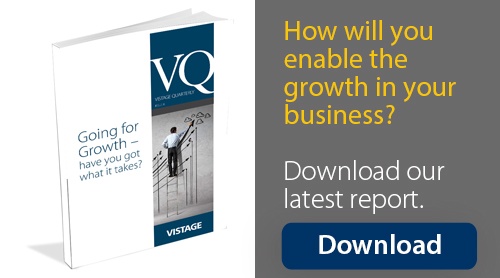
A survey undertaken by McKinsey consultants, published in January 2015, has highlighted some daunting findings for business leaders. With 34% of directors admitting that they fully understand the company’s strategy and only 22% claiming that they are aware as to how their firms created value. Whilst these figures are shocking to most, these findings are not out of line with my experience when working with executive boards.
So, as a business leader how can you make sure your board is more effective?
Here are a few observations of my own that I hope will help you to challenge the effectiveness of your board:
- The CEO is not always right
As the CEO are you openly challenged, or do you dictate to the masses?
My personal experiences suggest that many business leaders believe that now they are in the position of power, the entire board (not to mention the rest of the company) should listen to their opinions and their directives without challenge. Problem CEOs truly believe that they are the sole driving force behind the company and do not encourage positive confrontation. But, if you wish to be truly effective you must encourage others to speak up and if you do you will have access to and curate many bigger and better ideas.
To put this in perspective, Fred Goodwin, ex CEO of Royal Bank of Scotland was famously heard saying that “I want to be bigger than Barclays”- please note the “I”, needless to say this was said just before things began to fall apart.
- Your finances should not drive your overall strategy
If your long term goals and aspirations have become a number of additions of short term targets, then something has gone amiss. If the finance activity takes over, the revenues and profit targets become an end in themselves, and your boardroom debate will become entirely financial. If this happens the board will undoubtedly develop a fatal attraction to spreadsheets and your strategic picture is lost. As my team and I keep reminding our clients; “corporate strategy drives financial strategy, it is not the other way around"! - Do not follow consultants wildly into the dark
Humourist P G Woodhouse used to say “I always advise people not to give advice!”
Good consultants do have a role to play in the strategy creation process (we would say that), but the strategy decision(s) must never be abdicated to them. Very often the CEO and board hide behind the recommendations of external consultants. But, you must always remember; “advisers advise, ministers decide”. - Make your decisions on facts not opinions
Many ineffective boards have one thing in common - they make their decisions based on personal views and opinions, not to mention prejudice, and are not grounded on fact or hard analysis. Whilst I accept that boards will rarely have access to complete information in order to make a fully rounded decision. The two extremes are still to be avoided, i.e. please don’t force a decision, when all you have are ideas and hearsay. Instead, you must press the pause button whilst you wait for further research, or you can reach a decision on the basis of “I think we should...”
So, so often some robust analysis would have prevented a bad call. Do you have an example that would fit these criteria? I am certain that most do. - Cost cutting is not a strategy!
Tesco’s recent culling of stores and cutting prices to meet discounters is not a strategy. The market leader is allowing minor competitors to dictate the strategic agenda. This is not good. - An organisational restructure is not a strategy!
Similarly an organisational restructure is not a strategy. It should be a response to strategic decisions. There is ample research to suggest that very few restructures really add that much value and yet they will consume already busy executives’ and managements' time. Where else should you be focussing your efforts?
And I could go on.
These are just a few examples of the observations that I have made over the years. If you avoid these typical mistakes you will be much better able, to set and implement, a clear and robust strategy, and your board will help to support and propel you into the future.
At Board Evaluation we have launched a comprehensive and cost effective strategic health check that looks at all the aspects of your strategic planning, including the boards role in setting and monitoring your organisation’s strategy. It is a great way of addressing or revealing any current issues that you currently face and will provide you with the basis for how to improve.
So, how about stress testing your strategy? When was the last time you did something like that? Get your strategic healthcheck here.
Please note that there is a special discount for Vistage members. Contact info@board-evaluation.co.uk to find out more.
More from Vistage:
Our gift to you...
Apply now for your personal leadership consultation with a Vistage Chair. They'll help you assess areas of strength of your business and identify areas of potential growth.


